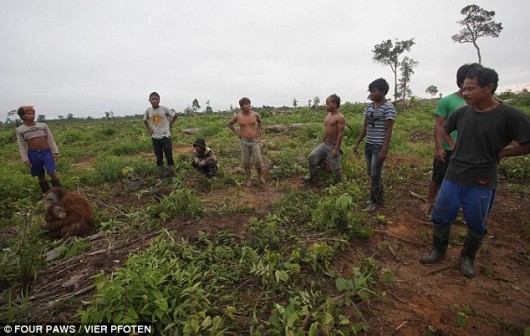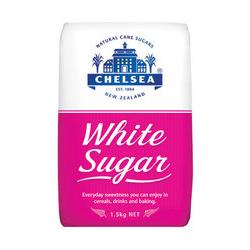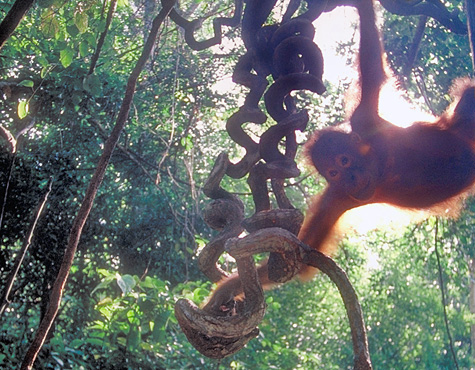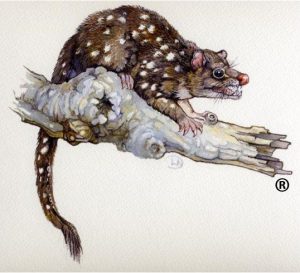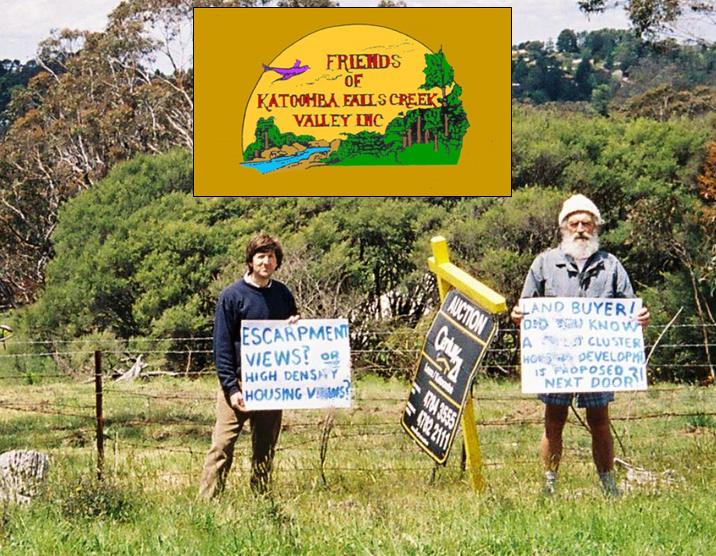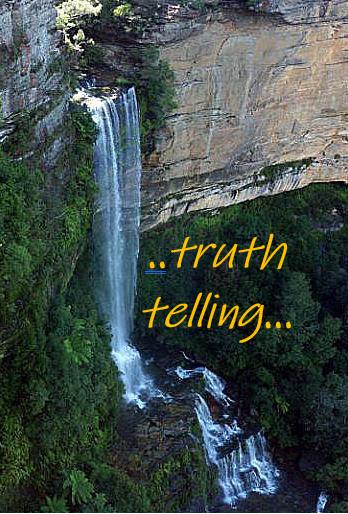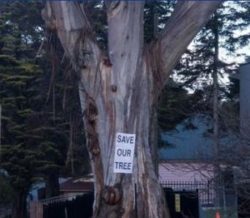Indonesian farmers will kill a mother and baby
Wednesday, February 1st, 2012It’s a remarkable photograph: A pregnant Orang-utan protectively clutching her five-year-old child as death seems imminent at the hands of bounty hunters armed with knives.
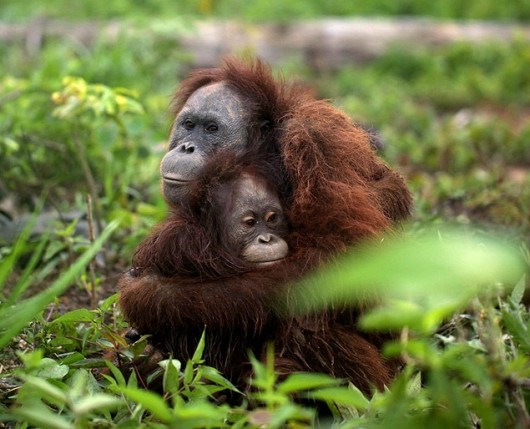 Ordeal…the mother and baby Orang-utan, above, were lucky to have escaped
a group of juvenile Indonesian poachers (below) in Kalimantan (Borneo)
(© Photo by Vier Pfoten of Four Paws International, ^http://www.four-paws.org.uk/ and
Ordeal…the mother and baby Orang-utan, above, were lucky to have escaped
a group of juvenile Indonesian poachers (below) in Kalimantan (Borneo)
(© Photo by Vier Pfoten of Four Paws International, ^http://www.four-paws.org.uk/ andPT Restorasi Habitat Orangutan Indonesia (RHOI) ^http://forest-carbon.org/project-list/first-project)
.
At The Habitat Advocate we wish to emphasise and thank the vital role of wildlife photographers around the world whose photos continue to help convey the plight of wildlife at the hands of humans. Without such photos, the truth would be less disseminated.
The following article was reproduced in The Sun-Herald newspaper (Sydney) on 20120129 on page 30. The article was borrowed from the New York Daily News newspaper (New York) which published the article on 20120127. The original source was the Daily MAIL (UK), written by Richard Shears, 20120127, under the long heading: ‘Don’t hurt my baby! Pregnant Orang-utan protectively hugs her daughter as ruthless Borneo bounty hunters move in for the kill‘.
The ultimate source is from the website of Four Paws UK.
Four Paws International is an international animal charity, campaigning to end animal suffering and cruelty. Four Paws International was founded in 1988 in Austria to campaign against fur farms and against battery farmed eggs.
Visit their website (English office) : ^http://www.four-paws.org.uk/
The partner organisation based in Indonesia is PT Restorasi Habitat Orang-utan Indonesia (RHOI), which translates into English as the Borneo Orang-utan Survival (BOS). Its name could not be more literal! Humans are systematically exterminating a species – the Orang-utan.
BOS has developed an Ecosystem Restoration Concession with the intention of using the forest area as a release site for rehabilitated Orang-utans. The proposed concession is in East Kalimantan is comprised of the ex-PT Mugitriman International (MGI) timber concession. BOS would like to obtain sustainable funding for managing and safeguarding this forest and is currently exploring the option of an avoided deforestation/REDD project where the sale of carbon.
Visit their website: ^http://forest-carbon.org/project-list/first-project
.
.
‘Pregnant Orang-utan mother and child rescued at last minute from knife-bearing bounty hunters in Borneo’,
by Rolando Pujol in the New York Daily News, Friday, 20120127, ^http://www.nydailynews.com/news/pregnant-orangutan-mother-child-rescued-minute-knife-bearing-bounty-hunters-borneo-article-1.1013270?].
It’s a remarkable photograph: A pregnant Orang-utan protectively clutching her five-year-old child as death seems imminent at the hands of bounty hunters armed with knives.
At the last minute, however, members of Four Paws International, an international animal-rescue group, swooped in last week and prevented their killings in Borneo, the Daily Mail reported.
“A few minutes later and the Orang-utans could have been dead,” said Dr. Signe Preuschoft, a primate expert with the British-based organization, according to the Daily Mail. “We discovered a gang of young men surrounding them and both victims were clearly petrified.”
The incident showcases the threat Orang-utans are facing as they are targeted for slaughter with a price on their heads.
“The gang meanwhile were jubilant in anticipation of their rewards for catching and killing the animals.”
The incident, compellingly captured in a dramatic photo of the mother cradling her child for dear life, casts a fresh light on the disturbing plight of Orang-utans, who were once common throughout Southeast Asia but now mostly live in Borneo and other areas in Indonesia.
The mother, estimated to be between 25 and 30, and the child were the only Orang-utans the team found alive in the area surrounding a palm-oil plantation. The group said it was scouting the area after reports of mass Orang-utan slaughter.
The spread of palm oil plantations, the group said, is accelerating the demise of the already endangered animals, which are losing native habitat because of widespread deforestation. The very name Orang-utan means “person of the forest,” as they spend most of their time in trees.
.
The palm-oil companies, the group said, are allegedly making matters worse by offering rewards of about $100 per dead Orang-utan, because they see the animals as nuisances.
.
“These massacres must not be allowed to continue,” Preuschoft said to the Daily Mail.
The rescued animals have since been released back in the wild in an area far from where they almost met death. The mother was fitted with a radio transmitter to help ensure the apes stay safe, the group said.
“Tens of thousands of adult Orang-utans have been slaughtered, while their orphaned offspring is frequently being sold off as pets or left behind to die, if they aren’t killed on the spot as well“, Four Paws International posted on its website.
The slaughter of Orang-utans is illegal in Indonesia, but enforcement has stepped up only recently, the group said.
“Mass graves that were discovered last September triggered the first few serious arrests, including a senior plantation manager“, the group wrote.
.
A similar article (in more detail) by the Daily Mail (UK):
.
‘Don’t hurt my baby! Pregnant Orang-utan protectively hugs her daughter as ruthless Borneo bounty hunters move in for the kill’
[Source: ”Don’t hurt my baby! Pregnant Orang-utan protectively hugs her daughter as ruthless Borneo bounty hunters move in for the kill’, by Richard Shears, 20120127, Daily Mail (UK), ^http://www.dailymail.co.uk/news/article-2092722/Pregnant-orang-utan-hugs-daughter-bounty-hunters-Borneo-in.html] .- Pair saved at last minute by UK-based animal rescue group
- Palm oil firms trying to clear plantations said to be offering £70 for each Orang-utan killed on the Borneo palm oil plantations
.
As bounty hunters with bush knives entrapped them in a circle and moved in for the kill, the only thing this mother Orang-utan could think to do was to wrap a giant protective arm around her daughter. The pair seemed to be facing a certain death as a gang of hunters surrounded them in Borneo, keen to cash in on the palm oil plantations’ bid to be rid of the animals.
But, happily, a team from the British-based international animal rescue group Four Paws International arrived in time to stop the slaughter and saved their lives.
The pregnant mother and daughter were captured and moved to a remote and safe area of the rainforest and released back into the wild – but not before the mother was equipped with a radio device so she and her young can be tracked to ensure they remain safe.
‘Our arrival could not have been more timely,’ said Dr Signe Preuschoft, a Four Paws primate expert. ‘A few minutes later and the Orang-utans could have been dead.’
‘We discovered a gang of young men surrounding them and both victims were clearly petrified.
‘The gang meanwhile were jubilant in anticipation of their rewards for catching and killing the animals. These massacres must not be allowed to continue.’
Saved: ‘Our arrival could not have been more timely. A few minutes later and the Orang-utans could have been dead’ said Dr Signe Preuschoft, a Four Paws primate expert
‘A few minutes later and the Orang-utans could have been dead.’ said Dr Signe Preuschoft, a Four Paws International primate expert
Mother and daughter were captured and moved to a remote and safe area of the rainforest and released back into the wild – but not before the mother was equipped with a radio device so she and her young can be tracked to ensure they remain safe.
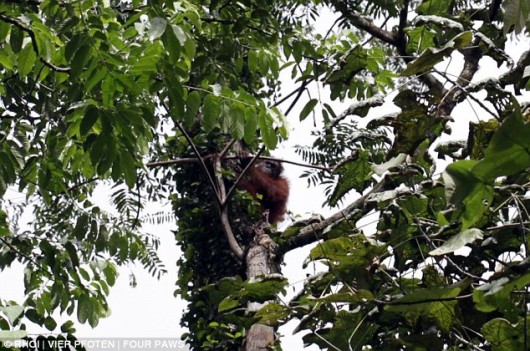 Mother and baby rescued and placed into the wild.
But with their rainforest wilderness rapidly being destroyed how long have these Orang-utans got? What happened to the father?
Mother and baby rescued and placed into the wild.
But with their rainforest wilderness rapidly being destroyed how long have these Orang-utans got? What happened to the father?
.
Before the rescue, a Four Paws International team had scoured the area on the Indonesian side of Borneo, which is shared with Malaysia, but found no other Orangutans which had survived an earlier slaughter.
.
Deforestation has dramatically reduced their habitat and their numbers have dropped from 250,000 a few decades ago to only 50,000 in the wild. And while the loss of their habitat by logging companies has created a major threat to their existence, a more brutal form of reducing their numbers has emerged in recent years – direct slaughter.
.
Palm oil is used in hundreds of products from chocolate to oven chips, but the demand for buying it at a low price has resulted in significant deforestation as habitats are being destroyed to make way for plantations. Some palm oil companies see Orang-utans as pests, a threat to their lucrative business, and have placed a bounty on their heads.
Company executives are reported to be offering up to £70 to employees for each Orang-utan killed on the palm oil plantations. While such stories were at first denied, proof of the slaughter emerged last September when graves and bones were found by investigators.
‘Killing of Orang-utans is illegal in Indonesia but the law is lacking enforcement,’ said a Four Paws UK spokesman.
‘Before November last year only two low-level arrests had ever been made. But in the last two months 10 more arrests have taken place including the arrest of the senior manager of the plantation where the worst graves have been found.’
In an equally tragic scenario, babies left alive after adult Orang-utans have been slaughtered have been put up for sale in the Pet Trade by hunters.
When traumatised babies are found by Four Paws International and other animal rescue teams they are taken to a sanctuary and taught skills they will need in order to return to the wild.
.
.
Selected comments from readers:
.
‘Boycott any product with palm oil!!!’
~ maninthemiddle, 20120128.
.
“Let’s find the corporate entities who are paying for the palm oil,then boycott,very sad story,very touching”
~ olefan_is_a_moron, 20120128.
olefan_is_a_moron (20120128):.
“The real problem in the world is overpopulation. Natural resources replace themselves unless they are overburdened by excessive demand due to a big population. Cutting down 1% of a forest will not harm it since trees will just grow back but when you’re destroying too much at once you’re just striping the land bare.”
~ DocPaul (20120128)
.
“Soon man shall be the only “animal” left for hunting.”
~ 3 VULTURES (20120128).
.
“Orang-utans are critically endangered in the wild because of rapid deforestation and the expansion of palm oil plantations into their rainforest home. The situation described in this article is all too common unfortunately. If nothing is done to protect these amazing creatures, they will be extinct in just a few years. Visit the Orangutan Outreach website to learn more and make a difference! http://redapes.org Reach out and save the orangutans! Adopt an orangutan today! {:(|}”
~ OrangutanOutreach (20120128).
.
“How about a bounty of $150 per dead bounty hunter?”
~ Meowmeister, 20120128.
.
“This is what happens when you have: 1. People believing that the so-called phrase “and man shall have dominion over the beasts” means they can be killed at will and 2. When human beings believe nothing absolutely nothing is more important than profit.”
~ itsallinperception, 20120128.
.
“Farmers are being killed in south America for the same reason, land. Plantation owners want the land to get money for carbon credits…”
~ nlohu, 20120128.
.
“So sad. Palm oil is not just used in food. It is also used in cosmetics. I think it is called retinyl palmitate, something like that. Any ingredient that has “palmitate (ie: palm) is from palm oil. It is a form of vitamin A, used in skin creams alot.”
~ ana63, 20120128.
.
“These companies should not be allowed to trade in the UK. We shouldn’t be trading with any company that doesn’t respect life and the environment.”
~ Lo, cheshire, UK, 20120128.
.
“Everything that is wrong with the world is due to humans. We will continue to destroy our world unless something radical happens to reduce the human population and to change the greedy mindset of the human population. This makes me so incredibly sad!”
~ GB, UK, 20120128.
.
“…I think what would be more helpful is to have the names of the food manufacturers who are purchasing the palm oil from those companies. I suspect we would see major names such as Nabisco, Kraft, etc.”
~ InfoOverload, 20120128.
.
.
ANSWER: The largest palm oil company worldwide is ‘Wilmar International’
.
One of the most powerful opponents of our ‘Save our Borneo’ activists is Wilmar International, the largest palm oil company worldwide, based in Singapore.
“Wilmar International Limited, founded in 1991, is Asia’s leading agribusiness group.
“We are amongst the largest listed companies by market capitalisation on the Singapore Exchange. Our business activities include oil palm cultivation, oilseeds crushing, edible oils refining, sugar, specialty fats, oleochemicals and biodiesel manufacturing and grains processing. Headquartered in Singapore, Wilmar has over 300 manufacturing plants and an extensive distribution network covering China, India, Indonesia and some 50 other countries to support a well established processing and merchandising business. Wilmar also manufactures and distributes fertilisers and owns a fleet of vessels. The Group is backed by a multi-national workforce of approximately 90,000 people.”
“We are today:
- The largest global processor and merchandiser of palm and lauric oils
- One of the largest plantation companies in Indonesia/Malaysia
- The largest palm biodiesel manufacturer in the world
- A leading consumer pack edible oils producer, oilseeds crusher, edible oils refiner, specialty fats and oleochemicals manufacturer in China
- One of the largest edible oils refiners and a leading producer of consumer pack edible oils in India
- The largest edible oils refiner in Ukraine
- The leading importer of edible oils into East Africa and one of the largest importers of edible oils into South-east Africa.
‘We will continue to leverage on the scale and strengths of our business model to benefit from the long term growth potential of the agricultural commodity business, especially in Asia.”
Visit website: ^http://www.wilmar-international.com/
.
.
Cyclone Yasi 2011 destruction sees Wilmar take over Australia’s CSR’s Sucrogen
.
[Source: ‘Proserpine creditors approve sale of mill to Sucrogen‘, 20111209, ^http://www.sucrogen.com/media/news].
‘Sucrogen, the Australian-based sugar subsidiary of Singapore-listed Wilmar International Limited, looks forward to an exciting future as the new owner of Proserpine Sugar Mill after a majority of Proserpine creditors, by number and value, voted today to approve Sucrogen’s purchase of the mill.
Sucrogen CEO Ian Glasson said the creditors’ vote was a great outcome and paved the way for the sale transaction to be completed immediately.
“The positive result means creditors will be paid, in full, before Christmas,” Mr Glasson said. “We are grateful to have received such strong support from creditors, who have clearly shown faith in us and our plans for the Proserpine region.”
Sucrogen’s offer comprised a headline price of A$120 million, plus a working capital adjustment, normal settlement adjustments, as well as absorption of the mill’s normal operating costs and certain critical capital expenditure incurred from 31 October 2011.
Mr Glasson said while Sucrogen was pleased to finally purchase the mill, it was disappointing the sale was not possible before the Co-operative was placed into voluntary administration.
“The negative campaign Tully ran to derail the first two member votes has, ultimately, cost members a substantial amount of money in administration and legal fees,” he said. Critically, it has also delayed capital and maintenance at the mill.”
However, the transition to Sucrogen management and leadership will begin immediately and we will hit the ground running next week and do our best to ensure the mill is ready for the start of 2012 season, despite the lengthy delays.”
Mr Glasson said Wilmar had expressed a strong interest in working with growers to help expand Proserpine’s sugar industry.
“We look forward to a long and productive relationship with local growers, Proserpine Sugar Mill employees and the whole Proserpine community.”
.
So the company that is behind the palm plantation clearing destroying Orang-utan habitat and encouraging Oran-gutans to be slaughtered, is the parent company that sells CSR Sugar across Australia and Chelsea Sugar across New Zealand and the artificial sweetener ‘Equal‘.
.
.
The palm oil industry says: ‘Orang-utans are pests!’
[Source: ^http://www.rainforest-rescue.org/newsletter/1267/282c3e5ec03e375e7afa82c63564ae41]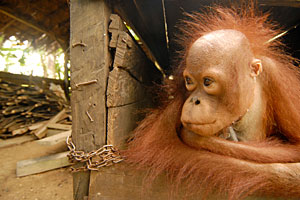 This juvenile Orang-utang’s mother was killed on one of the palm oil plantations
This juvenile Orang-utang’s mother was killed on one of the palm oil plantations.
“Dear friends of the rainforest, the BBC reports that Orang-utans are treated as “pest” and exterminated on Indonesian and Malaysian palm oil plantations. In the last year alone, up to 1,800 Orang-utans were killed in Kalimantan (Indonesian Borneo). They wander hungry through the plantations as though in a daze, looking for food and thus eat the palm seedlings. Palm oil plantation workers are paid to kill Orang-utans either before a forest is cleared or, if they see any in a plantation. Either way, it is totally illegal to harass, harm or kill any Orang-utans.”
[Source: ”Borneo: Environmentalists need help for preserving the rainforest’, ^https://www.rainforest-rescue.org/donate/90/borneo-environmentalists-need-help-for-preserving-the-rainforest] .“The current trend of converting rainforest into palm oil plantations is devastating our country. Our people cannot provide for themselves any longer; and endangered species such as the Orang-utans are doomed to die. It is high time for us to join forces and jointly put a stop to the palm oil industry’s illegal activities on all levels.“
Nordin, head and founder of our partner organisation ‘Save our Borneo’ (SOB) has lately experienced a great deal of suffering caused by the destruction of tropical rainforest in his home province Central Kalimantan in Borneo – including his own family. His little son Mirza was born when wildfires were raging for several months, obscuring the sky over Central Kalimantan and making breathing truly agonizing. Due to his chronic breathing difficulties, Mirza had to be hospitalised often. Even though slash and burn clearing methods are prohibited in Indonesia, fires are started again and again in order to gain more space for palm oil plantations.
One of the most powerful opponents of our ‘Save our Borneo’ activists is Wilmar International, the largest palm oil company worldwide.
.
(Wilmar International) act as if no rules apply to them. This company has the rainforest illegally logged and new plantations set up; they drive peasants off their land and arrest them if they defend themselves. Wilmar keeps founding new subsidiaries, and bribes officials to side-step the law.
.
Therefore, Save Our Borneo’s boss Nordin sent ‘Rainforest Rescue’ a strategic plan in order to unite our efforts and take action against Wilmar: We are also supported by regional environmentalists of ‘Walhi’, the Indonesian branch of ‘Friends of the Earth’.
.
“We want to sue the Wilmar Group at their headquarters in Singapore for their crimes committed against humans and nature,“ says Nordin. “However, first we will have to gather enough detailed facts and evidence for an absolutely watertight lawsuit.”
.
Their strategic plan is set to run for 18 months and works on all levels, including:
- Workshops with affected peasant families to discuss land rights and, possibly, draw up maps. Another goal is to inform the population about Wilmar’s modus operandi and how to defend themselves.
- Training in Forest Management and Land Rights
- Research and data gathering regarding activities of Wilmar subsidiaries.
- Workshops on corruption
- Public relations activities disclosing Wilmar’s law violations as well as any political involvement (multimedia campaign on TV, radio or the internet such as facebook, brochures etc.)
- Public dialogues between all the parties involved, having politicians, scientists, journalists, environmentalists and victims of the palm oil industry all sit together at one table.
.
Nordin calls his major offensive against Wilmar International an “Action Plan for a Better Life“.
Visit Rainforest Rescue website: ^http://www.rainforest-rescue.org/
.
